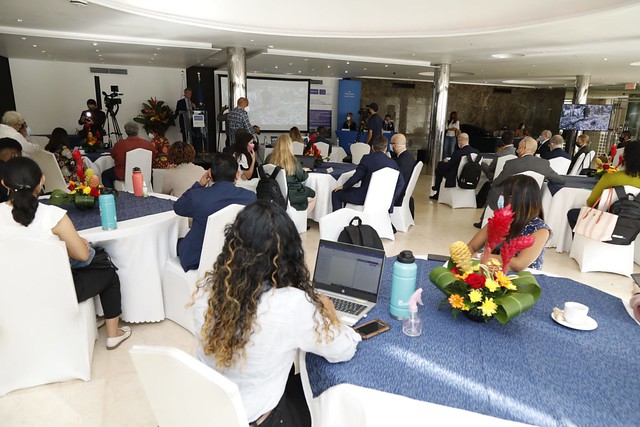Panama, one of the few countries in the world that absorb more CO2 than they emit, is one of the most active nations in the EUROCLIMA programme, and has so far participated in different regional projects and actions and legislative initiatives such as the Framework Law on Climate Change.
In January 2022 Panama inaugurated a new stage in its collaboration with the EUROCLIMA programme with the launch of the EUROCLIMA Panama Action Plan, a plan that marks the beginning of an even more strategic cooperation between the European Union and the Panamanian climate agenda.
This Action Plan has been drawn up based on the international climate commitments assumed by Panama following the Paris Agreements: its first Nationally Determined Contribution (NDC1), updated in 2020. Thus, the actions identified in the Plan contribute directly and significantly to the fulfilment of the NDC1 and to the achievement of a central challenge: to maintain the country's status as a greenhouse gas emissions sink by 2050.
The seven actions of this Plan include the development of the Low Carbon Economic and Social Development Strategy to 2050 and the establishment of the Regulatory Framework for the distribution of blue carbon. Other initiatives include the development of the National Climate Empowerment Strategy with a gender focus and the expansion of the Climate Transparency Platform to monitor the progress of the country's climate commitments.
With an investment of nearly USD 2 million, the EUROCLIMA Panama Action Plan will be implemented during 2022 and 2023 under the leadership of the Ministry of Environment, which is spearheading the Panamanian government's ongoing commitment to the climate action measures of the European Green Pact.
Panama's collaboration with the European Union therefore continues to advance, strengthening the alliance between Latin America and the EU as strategic allies in the global agenda against climate change.
Action 1: Develop the Republic of Panama's Low Carbon Economic and Social Development Strategy to 2050
Action 2: Establish the regulatory framework for the distribution of blue carbon, in the context of the National Carbon Market
Action 3: Develop the National Climate Empowerment Strategy with a gender focus, towards the reduction of greenhouse gas emissions and resilience to the effects of climate change
Action 4: Update and expand the Climate Transparency Platform to track progress on the country's climate commitments
Action 5: Develop integrated actions for the design and implementation of Nature-based Solutions in the framework of the country commitments set forth in the Panama NDC1
Action 6: Foster sustainable and resilient local economies in strategic sectors of Panama's NDC1 , facilitating innovations in the urban/rural environment
Action 7: Enhance capacities for climate risk reduction and resilience in human settlements



